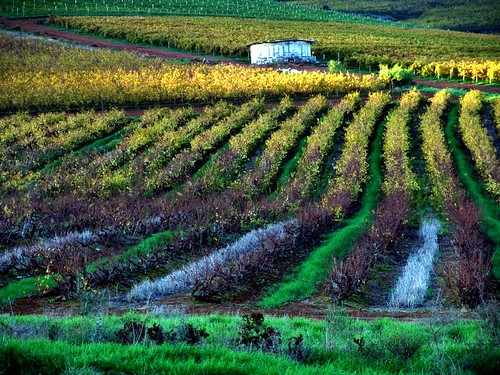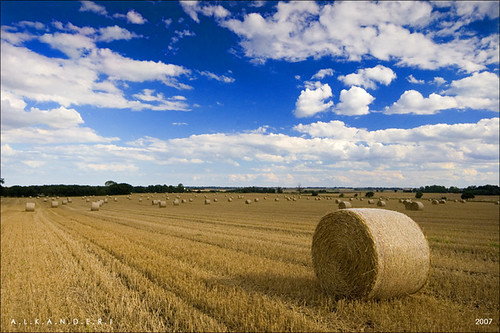
Rising Prices Reinforce Need for Food Security Policies
Martin Khor
The new key to food security is self-sufficiency, not trade, and policies are needed to expand local food production and invigorate the agricultural sector particularly in developing countries
EXCERPT:The Doha negotiations at the World Trade Organisation (WTO) are mandated to substantially reduce domestic support in developed countries. But to date, that has not materialised.
Another source of concern is the new US Farm Bill. According to several analyses, including those oif the US administration, the Bill will continue the present system of subsidies, and will even expand support in some ways for several commodities. For example, the Bill guarantees that 85 percent of the domestic market for sugar will be met by local production.
The Bill also allows a farm family with an income of up to $1.5 million to obtain subsidies, compared to the limit of $200 000 per farmer proposed by the Bush administration. The Bill thus ‘locks in’ the US system and its levels of subsidies for the next 5 years, and also constrains what the US negotiators can offer in the WTO Doha negotiations.
A major loophole in the WTO agriculture agreement is that countries are obliged to reduce their bound levels of domestic support that are deemed ‘trade distorting’ but there are no constraints on the amount of subsidies deemed non-distorting or minimally distorting, which are placed in the so-called Green Box.
Recent studies have shown, however, that many of the Green Box subsidies are also trade-distorting. The Doha negotiations are unlikely to place new effective disciplines on the Green Box. Therefore, the major subsidizing countries can change the type of domestic subsidies they give, while reducing the "trade-distorting subsidies" and continue to provide similar levels of farm subsidies.
Meanwhile, the developing countries are being asked to reduce their agricultural tariffs further. The Chair's proposal at the Doha talks is for a maximum 36 percent tariff cut for developing countries, and 24 percent for small vulnerable economies. This is sizable, and compares with the 24 percent cut in the previous Uruguay Round.
Most developing countries are advocating that the instruments of SP and SSM be set up as part of the WTO talks to promote food security and farmers’ livelihoods and rural development. SP would exempt important food products from tariff cuts or at least allow for more lenient cuts. SSM would enable a developing country to impose an additional duty on top of the bound rates in situations of reduced import price or increased import volume, in order to protect the local farmers. However, there is considerable opposition from some exporting countries to having these instruments that can work in an effective way.
Free trade agreements reduce tariffs even further
In the bilateral or regional free trade agreements involving developed and developing countries, the developing countries are asked to reduce or eliminate their tariffs by even more. For example, in the Economic Partnership Agreements between ACP countries and the EU, the ACP (group of African, Caribbean and Pacific less developed countries) are asked to eliminate their tariffs on 80 percent of their tariff lines over different time periods, among which are agricultural products.

Key policies and measures for food security
The economic and trade policies followed by many developing countries, often at the advice of international financial institutions, or as part of multilateral and bilateral trade agreements, have contributed to the stunting of the agriculture sector in developing countries. In order to increase food production in developing countries for food security, a number of policies and measures need to be implemented.
- Developing countries must be allowed to provide adequate support to their agriculture sector and to have a realistic tariff policy to advance their agriculture, especially as developed countries’ subsidies are continuing at a high level. The developed countries should quickly reduce their actual levels of subsidy.
- The agriculture policy paradigm in developing countries must be allowed to change. Countries should have the policy space to expand public expenditure on agriculture. Governments in developing countries must be allowed to provide and expand support to the agriculture sector.
- Developing countries should place high priority on expanding local food production. Accompanying measures and policies should thus be put in place. The countries should be allowed to calibrate their agricultural tariffs in such a way as to ensure that the local products can be competitive and the farmers’ livelihoods and incomes are sustained, and national food security assured.
- The proposals of developing countries (led by the G33) on special products and special safeguard mechanism at the WTO should be supported. Effective instruments that can meet the aims should be established.
- The policies of the World Bank, IMF and regional development banks should be reviewed and revised as soon as possible, so that they do not continue to be barriers to food security and agricultural development in developing countries.
- The actual levels (and not just the bound levels) of agricultural domestic subsidies in developed countries should be effectively and substantially reduced. There should also be new and effective disciplines on the Green Box subsidies to ensure that this category does not remain an ‘escape clause’ that allows distorting subsidies detrimental to developing countries.
- There should be a review of many of the FTAs between developed and developing countries, including the Economic Partnership Agreements between the EU and ACP countries. In light of the food crisis and the changing paradigm on food security, developing countries that have signed or are in the process of negotiating FTAs should ensure that the FTAs provide enough policy space to allow sufficiently high tariffs on agricultural imports to safeguard the principles of food security, farmers' livelihoods and rural development. Developed countries should also not make demands that adversely affect food production in developing countries.
Martin Khor is Director of the Third World Network, and this article is a revised and edited version of part of a paper on food crisis and climate change presented at a round-table at the FAO Summit on Food Security in Rome on 4 June 2008. For further details see Khor M. The impact of trade liberalization on agriculture in developing countries: the experience of Ghana. TWN, Penang, 2008.
http://www.i-sis.org.uk/risingPricesFoodSecurity.php

<< Página Principal